Ory Bower Finds Calling in New Role as Volunteer Coordinator
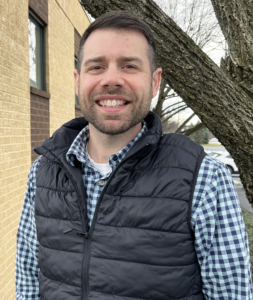 Ory Bower’s experience with Homeland Hospice has come full circle. He began as a volunteer in 2018, and was quickly inspired by Homeland’s mission to make a difference in the lives of others. Ory joined Homeland’s staff in an administrative position in 2021 and has worked in a variety of positions over the years. He recently took on the role of volunteer coordinator, which gives him the opportunity to work alongside Homeland’s inspiring volunteers.
Ory Bower’s experience with Homeland Hospice has come full circle. He began as a volunteer in 2018, and was quickly inspired by Homeland’s mission to make a difference in the lives of others. Ory joined Homeland’s staff in an administrative position in 2021 and has worked in a variety of positions over the years. He recently took on the role of volunteer coordinator, which gives him the opportunity to work alongside Homeland’s inspiring volunteers.
“When I started as a volunteer, I really connected with patients,” Ory says. “I made regular phone calls to lift their spirits.”
During his time talking to patients, Ory learned to understand what makes each person tick. He fondly remembers a woman who loved to quilt, and would update him on her latest projects and what she planned for future creations.
“She found comfort in completing tasks,” Ory remembers. “This gave her a sense of control in her life.”
Ory believes his perspective as a volunteer will help him in his new role. He understands no detail is too small. Every conversation, note, and encounter can make a difference in someone’s life. He looks forward to new and different ways he can engage with volunteers as well as patients and their families.
Since taking on this role in January, Ory has connected personally with each volunteer to gather their insights and feedback on current and future programs. Homeland’s life-changing work is made possible by volunteers who share their time and compassion with others. From working directly with patients to helping with administrative tasks, volunteers are the lifeblood of the organization.
One of the most popular volunteer opportunities is home visits with patients and their families. Volunteers read aloud, chat, play games and look at family photos to help provide patients comfort and friendship. These moments can be moving, and often lead to strong bonds between volunteers and patients.
In addition to personal visits, volunteers have opportunities to connect with patients through programs such as Homeland’s Soup & Casserole program that provides meals for patients and their families. Another program called My Life, My Legacy gives hospice patients an opportunity to tell their life story. The end result is a book with photos and memories for families cherish after their loved one’s passing. This program is very popular among volunteers.
“Our volunteers have so much dedication and compassion,” Ory says. “We truly couldn’t do our work without them.”
Ory grew up and lives in Newport. He attended Messiah University where he earned his degree in ministry. While he didn’t know about Homeland after graduation, he felt a calling to refocus his life to help others. This internal call to action along with his understanding of Homeland’s work will help him thrive in his new role.
“There is so much joy in this work,” Ory says. “I am proud to be part of the Homeland team.”
For more information on volunteer opportunities with Homeland Hospice, call Ory at (717) 221-7890.

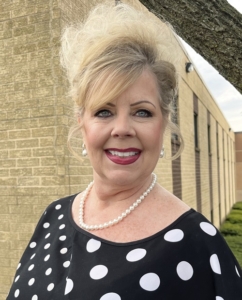 As a young woman, Tamara Jaroszewski of Harrisburg experienced the profound impact of hospice services when her sister died of breast cancer at age 40. For Tamara, hospice work became a beacon of hope and inspiration. She felt called to help patients during their end-of-life journey. Her call was recently answered when she joined Homeland’s Hospice team as the volunteer coordinator. Homeland Hospice, a nonprofit hospice program, serves communities throughout Central Pennsylvania.
As a young woman, Tamara Jaroszewski of Harrisburg experienced the profound impact of hospice services when her sister died of breast cancer at age 40. For Tamara, hospice work became a beacon of hope and inspiration. She felt called to help patients during their end-of-life journey. Her call was recently answered when she joined Homeland’s Hospice team as the volunteer coordinator. Homeland Hospice, a nonprofit hospice program, serves communities throughout Central Pennsylvania.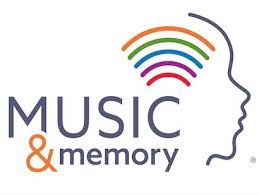 “You, my brown eyed girl.” The lyrics of “Brown Eyed Girl,” Van Morrison’s nostalgic and catchy song from 1967, is familiar to many and a portal to another time for others. For anyone growing up in the 1960s, this song and others from this era evoke memories of times with friends and the feeling of freedom that comes with youth.
“You, my brown eyed girl.” The lyrics of “Brown Eyed Girl,” Van Morrison’s nostalgic and catchy song from 1967, is familiar to many and a portal to another time for others. For anyone growing up in the 1960s, this song and others from this era evoke memories of times with friends and the feeling of freedom that comes with youth.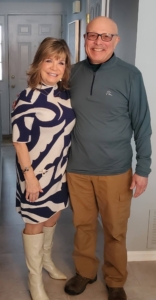 A love connection often begins at the most unexpected time. An ordinary day can be the start of an extraordinary relationship. Call it destiny or luck, 40 years ago on a cold and wintry day, Phil Talarico saw his now wife Barbara waiting for the bus to go to work. He offered her a ride and the two have been together ever since. The couple has created a beautiful life filled with faith, family and love of serving others, including volunteering with Homeland Hospice.
A love connection often begins at the most unexpected time. An ordinary day can be the start of an extraordinary relationship. Call it destiny or luck, 40 years ago on a cold and wintry day, Phil Talarico saw his now wife Barbara waiting for the bus to go to work. He offered her a ride and the two have been together ever since. The couple has created a beautiful life filled with faith, family and love of serving others, including volunteering with Homeland Hospice.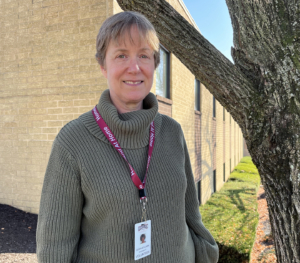 Volunteers come in many forms, and Homeland loves them all. They bring a helping hand to activities. They lend a listening ear.
Volunteers come in many forms, and Homeland loves them all. They bring a helping hand to activities. They lend a listening ear.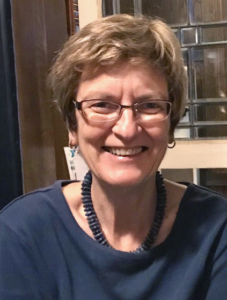
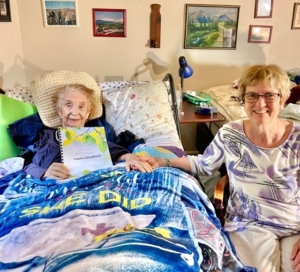 Through her experiences with the My Life, My Legacy program, Kandy has created a six-step outline to serve as a roadmap for volunteers to use as they interview patients and their families. The steps include questions about one’s early life, school years, higher education or vocation, work history, family history and further reflections. Kandy has found these questions frequently evoke treasured memories and stories.
Through her experiences with the My Life, My Legacy program, Kandy has created a six-step outline to serve as a roadmap for volunteers to use as they interview patients and their families. The steps include questions about one’s early life, school years, higher education or vocation, work history, family history and further reflections. Kandy has found these questions frequently evoke treasured memories and stories.
